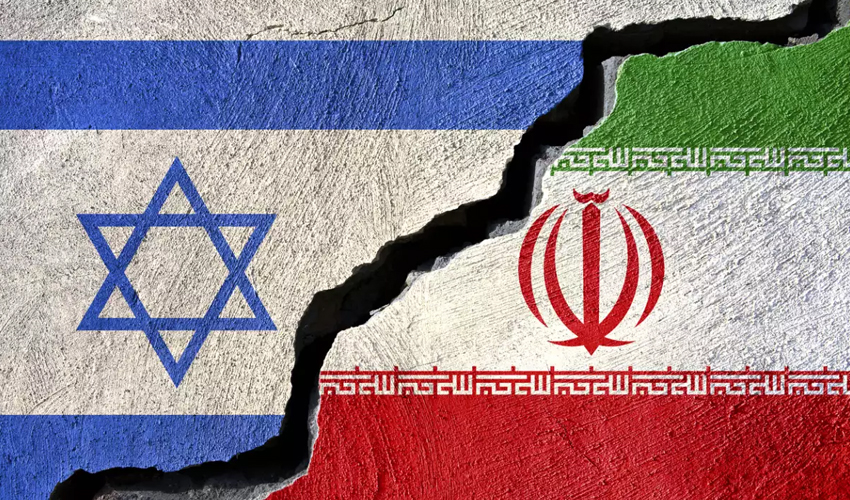Historical Context and Relations

The Iranian-Israeli conflict is a complex and multifaceted issue with deep historical roots. It involves a myriad of factors, including religious beliefs, territorial disputes, and geopolitical rivalries. Understanding the historical context is crucial to grasping the intricacies of this enduring conflict.
Historical Roots of the Conflict, Iranian israeli
The historical roots of the Iranian-Israeli conflict can be traced back to the establishment of the State of Israel in 1948. The creation of Israel was met with resistance from neighboring Arab states, including Iran, which had a long-standing history of supporting Palestinian nationalism. Iran’s opposition to Israel stemmed from its perception of the new state as an illegitimate entity that had usurped Palestinian land.
- Zionism and the Rise of Israel: The Zionist movement, which advocated for the creation of a Jewish state in Palestine, gained momentum in the late 19th and early 20th centuries. This movement was fueled by anti-Semitism in Europe and the desire for a safe haven for Jews. After World War II, the United Nations voted to partition Palestine into two states, one Jewish and one Arab. However, this plan was rejected by Arab leaders, leading to the 1948 Arab-Israeli War.
- Iran’s Position: At the time of Israel’s establishment, Iran, under the Shah’s regime, was a relatively secular state. While the Shah did not have a close relationship with Israel, he was not opposed to its existence. However, Iran’s position on Israel changed significantly after the 1979 Islamic Revolution.
The Impact of the 1979 Iranian Revolution
The 1979 Iranian Revolution, led by Ayatollah Ruhollah Khomeini, marked a turning point in Iran’s relations with Israel. The revolution brought to power a regime that was deeply opposed to Israel and Zionism. The new Islamic Republic of Iran adopted a strong anti-Israel stance, based on its ideology of Islamic resistance against Western imperialism and its support for the Palestinian cause.
- Rise of Anti-Zionism: The revolution led to a significant increase in anti-Israel rhetoric and propaganda in Iran. The Islamic Republic viewed Israel as a symbol of Western colonialism and a threat to the Islamic world.
- Support for Palestinian Resistance: Iran became a major supporter of Palestinian resistance groups, providing them with financial and military assistance. The Islamic Republic saw the Palestinian struggle as a key component of its broader fight against Zionism and Western imperialism.
Political and Ideological Differences: Iranian Israeli

The relationship between Iran and Israel is marked by deep political and ideological divides. These differences stem from contrasting political systems, conflicting visions for the region, and divergent religious interpretations. This section will delve into the key areas of disagreement between the two nations, exploring how these differences shape their relationship.
Political Systems and Ideologies
Iran and Israel operate under vastly different political systems and ideologies. Iran is an Islamic Republic, governed by a complex system that blends elements of democracy and theocracy. The Supreme Leader, currently Ayatollah Ali Khamenei, holds ultimate authority, with the President and Parliament serving as elected bodies. The country’s political system is based on Islamic principles, with the Constitution emphasizing Islamic law and Sharia. Israel, on the other hand, is a parliamentary democracy with a multi-party system. It is a secular state with a Jewish majority, where religious and secular perspectives coexist. The Prime Minister, currently Benjamin Netanyahu, heads the government, which is elected by the Knesset (Parliament).
Key Areas of Disagreement
- Nuclear Proliferation: Iran’s nuclear program has been a major source of tension between the two countries. Israel views Iran’s nuclear ambitions as a threat to its security, fearing the development of nuclear weapons. Iran, however, maintains that its nuclear program is for peaceful purposes, focusing on energy production and medical research.
- Regional Influence: Both Iran and Israel seek to exert influence in the Middle East, leading to competition for power and resources. Iran supports various groups in the region, including Hezbollah in Lebanon and Hamas in Gaza, while Israel has historically maintained close ties with several Arab states, particularly in the Gulf region. This competition for regional influence often spills over into proxy conflicts and heightened tensions.
- The Palestinian Issue: The Palestinian-Israeli conflict is a central point of contention between Iran and Israel. Iran strongly supports the Palestinian cause, viewing Israel as an illegitimate entity occupying Palestinian land. Israel, on the other hand, sees itself as a legitimate state with a right to exist, and has engaged in several wars with Palestinian groups seeking independence.
Role of Religion
Religion plays a significant role in shaping the relationship between Iran and Israel. Iran’s Shi’a Islamic ideology views Israel as an illegitimate state created by Western powers, while Israel’s Jewish religious tradition views the land of Israel as a divinely promised homeland. These differing religious perspectives contribute to the deeply rooted antagonism between the two nations.
Iranian israeli – The Iranian-Israeli conflict is a complex web of historical grievances and political ambitions, often fueled by a sense of existential threat on both sides. It’s a dynamic relationship where even the seemingly mundane, like the distance between chair and table in a negotiation room, can carry symbolic weight.
This conflict, despite its deeply rooted history, continues to evolve, with each new development demanding careful analysis and understanding.
The complex relationship between Iran and Israel, marked by historical tensions and geopolitical maneuvering, often takes center stage in international discourse. However, even amidst such weighty matters, it’s refreshing to see a rising star like alex highsmith making waves in the NFL.
His dedication to his craft and commitment to excellence are a reminder that even in the face of global challenges, individuals can still strive for greatness. Perhaps, in time, the Iranian-Israeli conflict will also find a path toward a brighter future, inspired by the spirit of individual achievement.
